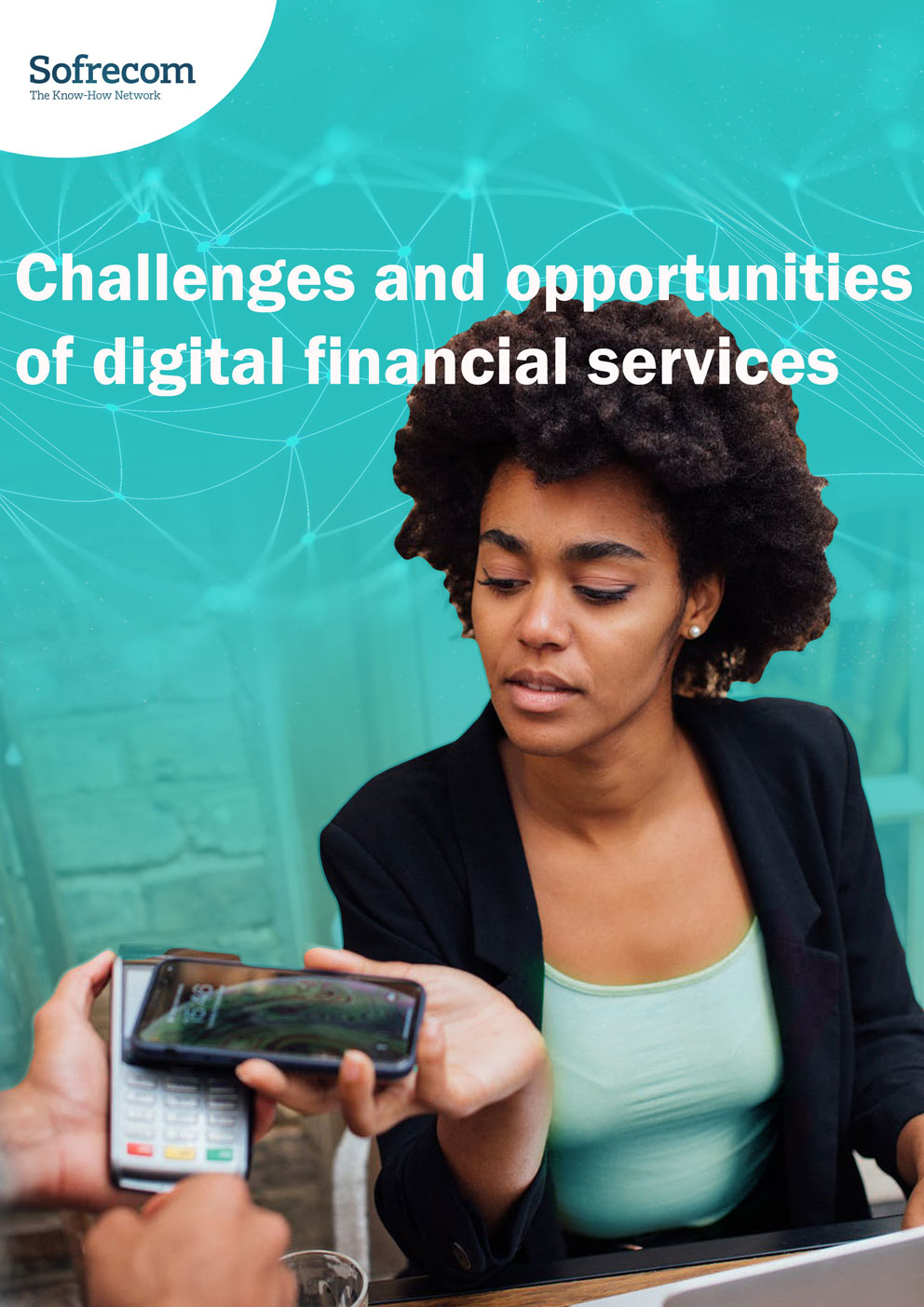

The competition that is growing and developing between traditional banks and mobile operators is transforming the mobile financial services market. Having a large-scale distribution network is the new goal: Banking Agents and partnerships with local banking networks are just some of the strategies being used to attract new clients. But who will have the last word?
New Mobile Money services have been continuing to emerge since the start of 2018.
There are high levels of competition between traditional banks and mobile operators for Mobile Money and Mobile Banking services in Africa. Certain large international banking groups have already thrown in the towel on the continent including Barclays (which recently sold its Egyptian subsidiary to Attijari Wafa Bank) and Citibank (which also sold its Egyptian subsidiary to the Commercial International Bank), although others have continued to invest significant resources in order to offer 100% mobile services.
In the first half-year period of 2018 alone, there have been around a dozen new offers e.g. Société Générale’s YUP offer in partnership with the mobile operator Nexttel, UBA Cameroun in the WAEMU region, Straight2Bank in partnership with Airtel and Standard Chartered Bank in Zambia, and the BPAY mobile payment offer in Morocco.
One of the key strategic factors, and what differentiates financial services offers in Africa, is the distribution network. This factor has been the key to success for mobile operators’ offers, which have capitalised on their existing telephone credit distribution partners, and have attracted millions of new customers in less than ten years, not only in Africa but elsewhere in the world as well. Conversely, this has been the weak point for traditional banks.
Banks use Banking Agents to win over new clients
Traditional banks find it very difficult to reach out to clients in emerging markets and in rural areas. Opening and running bank branches is not very profitable - if at all. Having Banking Agent, or appointing agents to perform certain bank distribution functions is a response to this problem by making it possible to cover areas in a more widespread manner. Banking agents can be retailers, telephone credit vendors, networks of shopkeepers, etc. The large number of these agents means they can offer proximity to their clients. Infrastructure and labour costs are reduced, while revenues are increased. The banking network relies on using agents who are already in place in the country.
The banking agents are also winners as they generate additional income i.e. in on top of their original business activities. They also stand out from the competition as they are affiliated with well-known banks.
Clients with no or little access to banking services can now easily access a financial institution near to where they live. In addition to reducing travel times and costs, transaction fees are also lower.
The banking agent model has already proven successful in several regions around the world. The Kenyan Equity Bank became profitable after it was able to access the mass deposits market via its network of banking agents. This success was made possible by a local government strategy, which aims to increase the number of people with access to banking services from 30% in 2013 to around 70% by 2030. The Government encouraged the development of this model by modifying the finance law in 2009 to allow banks to use banking agents. At the end of 2016, the Equity Bank had 27,016 agents compared to just 117 bank branches in the country.
In the Democratic Republic of Congo, the Fondation pour l'Assistance Communautaire Internationale (FINCA) set up a network of banking agents to ensure its clients’ safety. In the past, clients had to travel long distances to visit their bank branch and were at risk of being robbed en route, as well as wasting time and productivity due to the long travel times. The network of banking agents understands the needs of local businesses and shopkeepers, and provides them with basic banking services. Following on from the success in this country, FINCA also introduced banking agents in Tanzania and Zambia.
More recently, Société Générale has capitalised on its previous attempts and, since September 2017, has launched an offer called Yup in Côte d’Ivoire, Senegal, Ghana and Cameroon; this will be rolled out in Burkina Faso, Togo and Guinea in 2018. The aim is to have one million wallets by 2020 i.e. doubling the number of Société Générale's private clients in Sub-Saharan Africa.
YUP plans to stand out from the competition thanks to the accessibility of its services. Société Générale has formed partnerships with several third-party agent networks (service stations, shops, etc.). The offer is accessible via its partners equipped with special terminals and via the mobile banking app. The bank is planning to have a network of 8,000 agents by 2020.
To be successful, the Banking Agent network must be run efficiently. The Bank must have an effective operational model to support and monitor the agents’ banking transactions. This model requires high levels of corporate support i.e. a centralised call centre, specialised agency supervision with a supervisor-agent ratio of 1.40 per branch, a marketing strike force, and attractive commission rates for agents.
Operators are not being left behind
Operators are not resting on their laurels either. Certain are reluctant to use the networks and solutions of their banking competitors as the MTN operator did in April 2018 when it signed an MoU with Ecobank.
Others want to become banks or take over existing banks. The Orange group recently announced its intention to offer banking services and has applied to WAEMU for a banking licence. It hopes to launch operations in the eight countries in the region by the end of the year.
Mobile operators have already signed several partnership agreements to offer micro-finance services in West Africa. Orange recently launched its first savings and loan offer - m-kajy - in Africa in partnership with the Première Agence de Microfinance, while MTN has partnered with Bridge Bank for its MomoKash services in Côte d’Ivoire.
Finally, some actors are forming partnerships with players in the digital and e-commerce world to develop mobile money offers, such as Safaricom which has just signed a partnership deal with PayPal to enable a flow of capital between PayPal accounts and Safaricom’s M-Pesa wallets. This has been made possible by the platform of the start-up firm TransferTo, which will enable Kenyans to make and receive PayPal payments.




